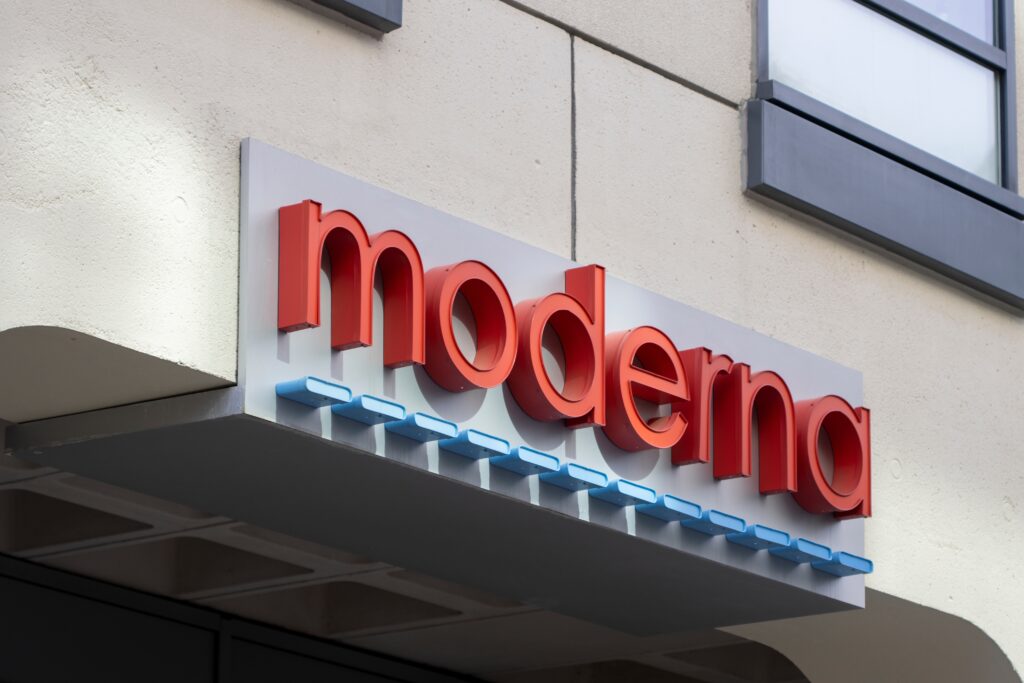Just a short year after GSK and Pfizer won approvals for their respiratory syncytial virus (RSV) vaccines, Moderna has received the US Food and Drug Administration (FDA)’s stamp of approval for its RSV shot mRESVIA (mRNA-1345).
mRESVIA is now the third approved RSV vaccine and the first mRNA-based RSV vaccine.
Similar to GSK’s Arexvy and Pfizer’s Abrysvo RSV vaccines, mRESVIA is indicated for the protection of individuals 60 years of age and older from lower respiratory tract disease (LRTD) caused by RSV infection. Abrysvo has an additional approval as a maternal vaccine to prevent RSV infection in infants.
The approval for mRESVIA came at a good time for Moderna as COVID-19 vaccines are no longer top of mind for many with the tides of the pandemic having calmed. After its COVID-19 vaccine Spikevax, mRESVIA is Moderna’s second product approval.
RSV is a highly contagious seasonal respiratory virus and a leading cause of LRTD and pneumonia that can lead to complications, particularly in infants and older adults. According to the US Centers for Disease Control and Prevention (CDC), it is estimated that among older adults, RSV infections lead to 60,000 to 160,000 hospitalizations and 6,000 to 10,000 deaths every year.
In a news release announcing mRESVIA’s approval, Moderna said it anticipates the vaccine will be launched in time for the 2024-2025 RSV season, which in the US typically coincides with flu/respiratory virus season in the late fall.
XTALKS WEBINAR: Streamline Serological Testing Using Multiplexed Assays that Generate Multiple Results in a Single Test
Live and On-Demand: Tuesday, July 16, 2024, at 11am EDT (4pm BST/UK)
Register for this free webinar to gain insights into the transformative capabilities of an innovative, multiplexed microarray-based technology for serological testing and vaccine analytics.
So far in the RSV vaccine arena, GSK’s Arexvy has generated 1.2 billion pounds ($1.5 billion) while Pfizer’s Abrysvo earned about $1.03 billion in 2023, their first non-full year on the market.
mRESVIA consists of an mRNA sequence encoding a stabilized prefusion F glycoprotein, which is expressed on the surface of the virus to help it enter host cells. The prefusion conformation of the F protein is highly conserved across both RSV-A and RSV-B subtypes. Moderna said mRESVIA uses the same lipid nanoparticles (LNPs) as its COVID-19 vaccines.
mRESVIA’s approval was based on data from the Phase III ConquerRSV study involving 37,000 adults 60 years of age and older across 22 countries. The vaccine had an efficacy rate of 83.7 percent against RSV-associated LRTD after 3.7 months of median follow-up.
Moderna said an additional longer-term analysis revealed continued protection against RSV LRTD over 8.6 months median follow-up.
No serious safety concerns were seen in patients who received the vaccine in the trial. Most side effects were mild to moderate and included fatigue, pain at injection site, headache, muscle pain and joint pain.
Related: CMV Vaccine Trials: Moderna’s CMV mRNA Vaccine Enters Phase III
Arexvy Versus Abrysvo: How Do the RSV Vaccines Compare?
In addition to COVID-19 and now RSV, Moderna has several other mRNA candidates in development, including ones against influenza, HIV, Lyme disease and Zika, among others. In total, the company has 40 products in development with several in late-stage trials.
The products include a combination vaccine targeting COVID and influenza, which could see an approval as early as 2025.
Moderna is also working on a cancer vaccine with Merck & Co for melanoma. This week, the companies shared three-year Phase IIb trial data for the vaccine in combination with 2023’s best-selling cancer drug Keytruda (pembrolizumab), which showed an overall survival rate of 96 percent compared with 90.2 percent with Keytruda alone. The vaccine also showed robust durability with around 75 percent of patients who received the vaccine-drug combination having recurrence-free survival compared with 55.6 percent on Keytruda alone.
Moderna and Merck are also conducting a late-stage study of the vaccine and Keytruda combination.
With the inevitable falloff of COVID-19 vaccines, Moderna earned $6.8 billion in 2023 compared to $19.3 billion in 2022. Despite the more than 60 percent decline in sales, also experienced by Pfizer last year, which Moderna was expecting to be steeper, there were some silver linings. Moderna captured 48 percent of the COVID-19 US market compared to 37 percent in 2022, catching up to Pfizer’s COVID-19 shot Comirnaty.
Investors also appear to have renewed confidence in Moderna’s future as shares of the company have been up more than 40 percent this year, recovering well after falling 45 percent in 2023.
Later this month, an advisory panel to the CDC will vote on recommendations for the use and intended population of Moderna’s mRESVIA. During an earnings call on May 1, Moderna said it is anticipating an equal recommendation to RSV shots from GSK and Pfizer.
If you want your company to be featured on Xtalks.com, please email [email protected].












Join or login to leave a comment
JOIN LOGIN